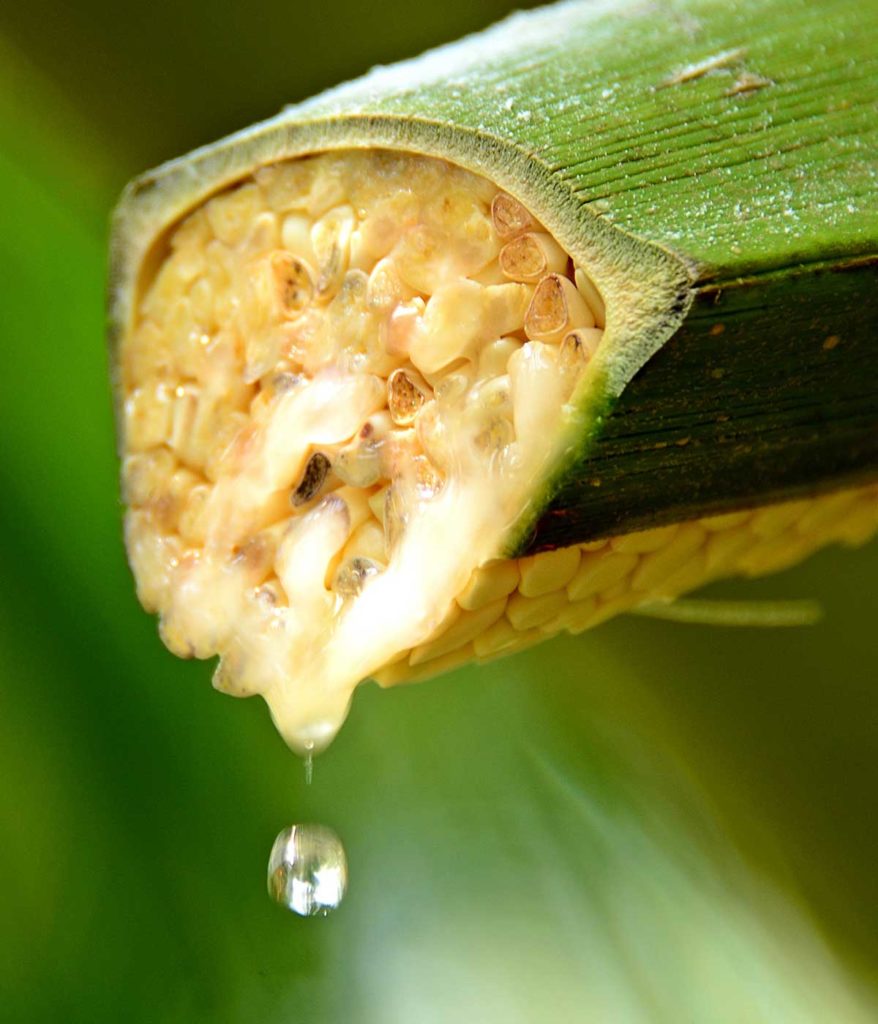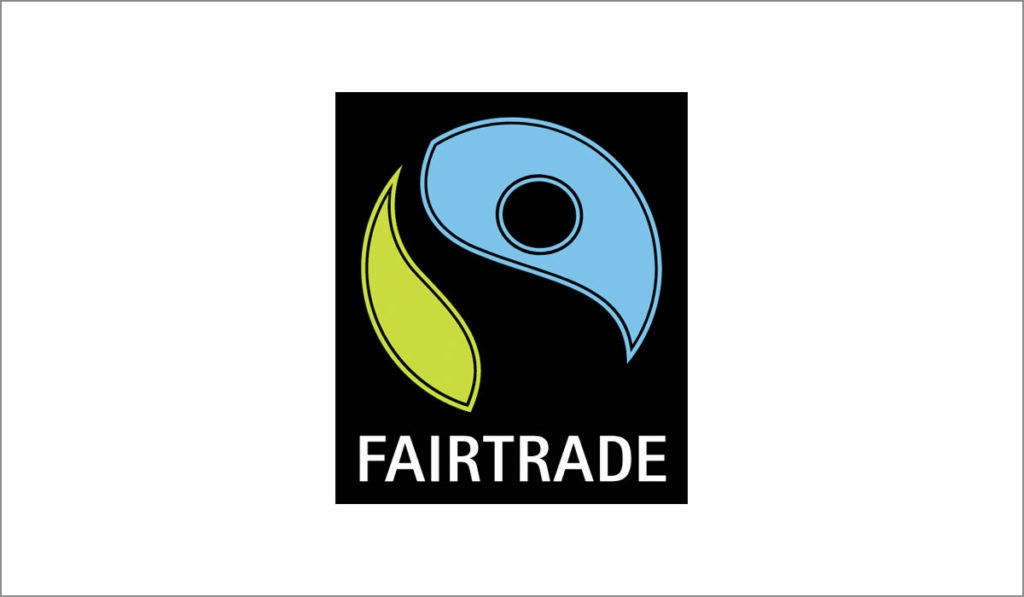Coconut sugar
Non-refined coconut sugar from the wholesale trade has a low glycaemic index and a caramel-like flavour. It is often used as an alternative to conventional table sugar.

Coconut sugar – what is it?
The most important raw materials for sugar production are sugarbeet in Europe and sugarcane in tropical and subtropical regions. Chemically identical sucrose can be extracted from both of these plants. This type of sugar is available wholesale in a number of different varieties which differ in various ways, such as the degree to which they are refined. The most popular products are Cane sugar, Whole cane sugar as well as Industrial sugar made from sugarbeet.
Besides both of these common raw materials, the wide range of sweeteners includes other sugar alternatives such as coconut sugar. But what exactly is it? The coconut palm (Cocos nucifera) produces flowers whose juice can be extracted and boiled down for the production of coconut sugar. This boiled-down mass then crystallises to form the sugar. The sugar varieties coconut sugar, coconut palm sugar, palm sugar and coconut blossom sugar are terms used as synonyms for the same product. In contrast to coconut sugar, palm sugar can also be made from the flowers of other palm varieties. Among the indigenous people, coconut sugar has long been considered to be the most important sweetener. In Germany, this form of sugar is available in the retail and wholesale trades typically as a brown and grainy powder.
Production of coconut sugar
The origin of coconut sugar sold in Germany usually lies in South-East Asia. The most important cultivation regions include Indonesia, the Philippines and Thailand. Palms mature sufficiently for the production of sugar from an age of around three to four years. To extract the nectar from the coconut palms, farmers scratch the inflorescence and collect the liquid that leaks out. Quick processing is then necessary to prevent the liquid from fermenting. The nectar is filtered and boiled down until the liquid has completely evaporated. Processing at low temperatures in a vacuum steamer promotes crystallisation. Finally, the mass is ground into coconut sugar and then packed. Since the product is heated to at least 70 °C during production, this type of sugar is not considered raw.
When it comes to the cultivation of raw materials for sugar production, environmental protection and compliance with social standards are highly important to many importers and consumers. Coconut flower sugar is seen as a sustainable alternative to other types of sugar. Up to two litres of nectar can be collected from a palm every day, which allows the production of around 500 grams of coconut sugar. The flowers are undamaged by this process. This means it is possible to extract sweet nectar from a single coconut palm for a period of over 70 years. This form of sugar extraction is very similar to maple syrup. Farmers are thus able to harvest from the same plants over many years. This increases yield and protects the environment. It is not necessary to cut down the harvested plants and sow new seedlings.
Small-scale farmers often refrain from the use of pesticides and similar substances for financial reasons. Nonetheless, it’s a good idea to choose organic coconut sugar as well as fairtrade products. Refraining from the use of chemicals has no effect on the shelf life of coconut sugar. Due to the fact that the sugar is imported from countries in Asia and Africa, the working conditions should be examined on the basis of clearly defined criteria. It’s also recommended to consider the quality of the products and their purity when buying coconut sugar. In some cases, the product might have been cut with cane sugar or sugar from other types of palm. This not only alters the flavour, but also the otherwise low glycaemic index of the coconut sugar.

Coconut sugar: alternative to other types of sugar
Many consumers are interested in new sugar alternatives, such as coconut sugar. Why is this sugar variety becoming increasingly relevant? Table sugar is considered unhealthy and is found in many processed foods, baked goods and confectionery. Cutting out sugar entirely is often difficult for consumers as they have grown accustomed to its sweet taste. For this reason, many consumers opt instead to substitute industrial sugar for a healthier alternative. The following section shows a comparison between coconut sugar and other types of sugar to highlight their differences.
Coconut sugar vs. cane sugar
The properties of coconut sugar include a brown colour typically associated with whole cane sugar. These types of sugar also have similarities in other aspects. Whole cane sugar is also extracted from a tropical plant, sugar cane, and processed into a natural sugar variety without refining. Moreover, both sugar varieties are characterised by a caramel-like flavour and a low glycaemic index. One difference between these sugar varieties is the granulation, which is finer for coconut sugar bought through the wholesale trade. Conversely, refined cane sugar corresponds to the table sugar common in Germany and differs significantly from coconut sugar in terms of its white colour and nutritional value, which is discussed further in the next section.
Contents and nutritional value
Palm sugar consists of up to 90 percent pure sucrose. In addition, this sugar variety contains low quantities of other sugars (glucose and fructose), vitamins, trace elements, proteins, fats, minerals, natural antioxidants and fibre. The contents of coconut sugar make this sugar variety different from conventional table sugar made from sugarcane or sugarbeet. Due to the minerals contained, such as potassium, iron, magnesium and zinc, the sugar substitute coconut sugar is believed to be a healthier alternative. Its contents also include a small amount of inulin, which makes coconut sugar beneficial for maintaining healthy intestinal flora.
In order to ingest a sufficient amount of nutrients, an unhealthy amount of sugar with a high calorific content would have to be consumed. Compared to unprocessed foods like fruit, vegetables or wholegrain products, the nutrient content is relatively low. At 380 to 400 kilocalories per 100 grams, the calorie content of coconut sugar is comparable with cane and beet sugar. The amount of carbohydrates per 100 grams is likewise only ten grams below that of table sugar.
Advantages and disadvantages of coconut sugar
One of the advantages of coconut sugar is that the production process does not involve any refining of the sugar. This means the sugar is less intensely processed and is more natural than common, refined white sugar. What’s more, coconut sugar from the wholesale trade has a lower glycaemic index of 35. In comparison, table sugar is far above this value with an index of 60. Other sugar alternatives like honey or maple syrup also have a higher glycaemic index. The higher this value is, the greater consumption will raise blood-sugar levels. The low glycaemic index of coconut sugar shows that blood-sugar levels rise more slowly and steadily after consuming the sugar. Other advantages are a long-lasting feeling of satiety, longer endurance during sports and protection against coronary heart diseases. For many consumers, another advantage is that the sweet taste of coconut sugar has a note of caramel and malt, rather than coconut.
A disadvantage of coconut sugar is its relatively high price. This type of sugar is considerably more expensive than other sugar varieties due to the costlier production process. Moreover, the low glycaemic index reveals that this type of sugar comprises around 40 percent fructose. Consuming more than 20 grams per day puts a strain on the liver, which produces more fatty acids as a result. Over an extended period of time, this can lead to metabolic disorders. Furthermore, this type of sugar is not suitable for a low-carb diet due to the high amount of carbohydrates contained.
Use of coconut sugar

Coconut sugar can replace common table sugar one-to-one. When dosing coconut sugar, it’s therefore not necessary to adjust the given recipe. Nonetheless, it’s a good idea to note that the sweetness of coconut sugar is slightly lower than that of white sugar. The intense, caramel-like flavour of palm sugar is not desirable for every recipe, however. For this reason, a smaller amount of coconut sugar is often sufficient despite the reduced sweetness. It’s also important to bear in mind that the sugar dissolves completely. Coconut sugar sometimes needs more time for this than conventional, white sugar.
In contrast to other coconut products, coconut sugar has no coconut flavour. The unique, caramel-like aroma of this sugar alternative is particularly popular for desserts, fruit drinks and coffee. Other popular applications are doughs with a nut flavour as well as wholegrain doughs, tea and cocktails. Due to the low melting point, the sugar can be used practically anywhere. When used in baked goods, the dough needs to be stirred for longer than usual. Otherwise, coconut sugar tends to clump together.
Current diet trends have similar effects on people and pets alike. For this reason, a number of pet owners are opting for alternative sweeteners for their dogs. Coconut sugar as well as stevia are popular alternatives for sweetening dog food. In contrast, birch sugar (xylite) is life-threatening to dogs from just three grams per kilogram of body weight. The consumption of birch sugar is likewise dangerous for other animals like rabbits and rodents.
Overview of advantages and disadvantages of coconut sugar from the wholesale trade
| Advantages | Disadvantages |
|---|---|
| Sustainable cultivation: plants are not damaged | More expensive than other sugar varieties |
| Unrefined, natural sugar variety | Low nutritional content |
| Low glycaemic index | Calorie and fibre content comparable with that of other sugar varieties |
| Gluten-free and vegan | High amount of fructose |
| Sweet, caramel-like flavour | Only suitable for baking to a limited extent |
| Valuable contents | Unsuitable for a low-carb diet |
| Can be used like table sugar | |
| Suitable for dogs |
Our coconut sugar is certified:


Buy coconut sugar online from the wholesaler August Töpfer & Co.
When buying coconut sugar, you can choose from the high-quality options available in our range. The traditional company August Töpfer & Co. offers coconut sugar in various quantities and retail packs. Moreover, you can also order palm sugar from other types of palms as well as other popular sugar varieties such as cane sugar, raw cane sugar and whole cane sugar. We place great importance on carefully selecting producers when importing coconut sugar. We maintain long-term relationships with local producers and can thereby ensure on-time delivery of high-quality products at all times.
